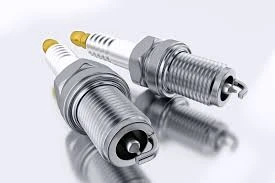10 月 . 07, 2024 15:15 Back to list
oil seal types
Understanding Oil Seal Types A Comprehensive Overview
Oil seals, also known as radial lip seals, are essential components used in various machinery and engines to prevent the leakage of lubricants while keeping contaminants at bay. These seals play a critical role in maintaining the efficiency and longevity of equipment by ensuring that oils and greases stay where they are needed most. In this article, we will explore the various types of oil seals, their applications, and key considerations in their selection.
1. Basic Types of Oil Seals
There are several types of oil seals, differentiated by design, materials, and application. The most common types include
- Single Lip Seals These seals have one sealing lip and are commonly used in applications where low-pressure capabilities are required. They are suitable for static and low-speed applications.
- Double Lip Seals Featuring two sealing lips, these seals provide enhanced protection against dirt and moisture. The second lip acts as a barrier, keeping contaminants out, which makes them ideal for high-performance applications.
- Spring Loaded Seals These seals incorporate a small spring that applies a continuous force against the sealing lip to maintain contact with the rotating shaft. This design compensates for wear and thermal expansion, ensuring a consistent seal over time.
- Mechanical Seals Typically used in pumps and high-pressure applications, mechanical seals consist of a rotating part and a stationary part that create a seal when pressed together. They are known for their robustness and high sealing capability.
2. Materials Used in Oil Seals
The performance of oil seals is heavily influenced by the materials used in their construction
. Common materials include- Nitrile Rubber (NBR) This material is highly resistant to oil and is one of the most common choices for oil seals due to its excellent sealing properties and durability.
- Fluoroelastomer (FKM) Known for its high-temperature resistance and compatibility with a wide variety of fluids, FKM is often utilized in high-performance seals.
oil seal types

- Polyurethane This material is known for its resilience and wear resistance, making it a suitable choice for applications in rugged environments.
- Silicone While not as oil-resistant as nitrile rubber, silicone oil seals can withstand extreme temperatures, making them valuable in high-heat applications.
3. Applications of Oil Seals
Oil seals are utilized in countless applications across numerous industries. Some of the most common uses include
- Automotive Industry Oil seals are crucial in engines and transmission systems, helping to prevent oil leaks and maintain lubrication.
- Industrial Machinery In manufacturing equipment, oil seals protect bearings and gears from contamination, ensuring smooth operation and longevity.
- Aerospace Applications Due to the demanding conditions in aviation, specific oil seals are designed to withstand extreme temperatures and pressures.
- Agricultural Equipment Oil seals in tractors and other agricultural machinery help maintain the efficiency of moving parts in harsh environments.
4. Selecting the Right Oil Seal
Choosing the appropriate oil seal involves considering several factors, including the type of application, temperatures, pressure levels, and the nature of fluids involved. Additionally, it’s essential to ensure proper installation, as an incorrectly fitted seal can lead to premature failure.
In conclusion, understanding the different types of oil seals, their materials, applications, and how to select them is vital for optimizing machinery performance and ensuring longevity. By investing in the right oil seals, industries can significantly reduce maintenance costs and downtime, ultimately enhancing productivity.